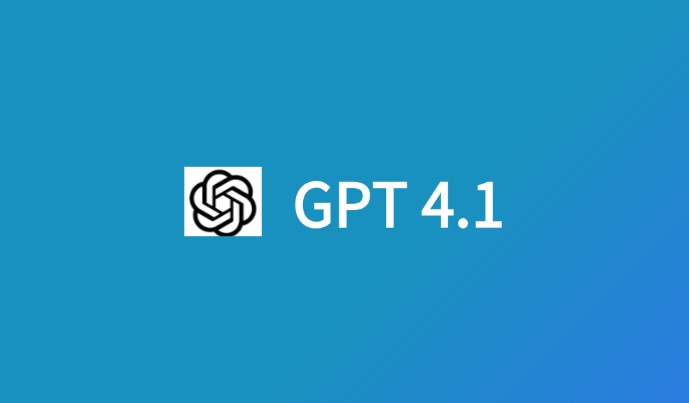Summarizing a book in just minutes sounds almost impossible, doesn’t it? However, with the help of Artificial Intelligence (AI), this process is no longer a dream—it’s a practical reality. Whether you’re a busy professional, a student trying to digest a mountain of reading, or simply someone who enjoys learning quickly, AI can significantly streamline the book summarization process. This guide will explore how you can harness the power of AI to summarize any book efficiently, focusing on practical, easy-to-understand methods, supported by authoritative data, and helpful tips to maximize your summarization skills.
Why Summarizing Books is Important?
Reading is an essential activity in both personal and professional growth. However, with the vast amount of information available, it’s often difficult to find the time to read full-length books. This is where summarization comes in. Summarizing allows you to capture the essence of a book without needing to read every single word. The benefits of summarizing are numerous:
- Time-saving: Summarizing allows you to extract the most important ideas quickly, saving you valuable time.
- Improved understanding: Focusing on the key points helps in retaining the most relevant information.
- Efficient learning: Summarization is a great way to revisit key concepts and refresh your knowledge.
With AI, these benefits are magnified—allowing you to summarize books in minutes without sacrificing the quality of information.
The Power of AI in Book Summarization
What Makes AI So Effective in Summarizing Books?
Artificial Intelligence leverages machine learning models that can process large amounts of text in a fraction of the time it would take a human. More specifically, Natural Language Processing (NLP) allows AI to understand, interpret, and summarize texts accurately. Here are several reasons why AI excels in summarizing books:
- Speed: AI can read and comprehend a book’s content far faster than any human can. What might take you hours or days can now be done in minutes.
- Accuracy: Using advanced algorithms, AI focuses on extracting key points, eliminating unnecessary details while preserving the core message.
- Customization: AI can be tailored to provide summaries based on specific interests. Whether you want a broad overview or an in-depth summary of a particular section, AI can adjust accordingly.
- Consistency: Unlike humans, AI doesn’t get tired or distracted. It provides consistent summaries every time.
Step-by-Step Guide on How to Summarize Any Book Using AI
1. Choose the Right AI Tool for Summarization
The first step is selecting a high-quality AI tool to help you summarize books effectively. Some popular tools include:
- iWeaver’s AI Book Summarizer: This specialized tool uses advanced AI algorithms to analyze and summarize entire books efficiently. With iWeaver, you can upload full-length books and receive concise, well-structured summaries that capture the key points, whether you need an overall summary or an in-depth analysis of specific chapters. iWeaver is particularly useful for those who want to process large volumes of text quickly and consistently. Additionally, iWeaver supports multi-document processing, allowing you to upload and process documents in 9 different formats simultaneously. This cross-format upload feature ensures that various types of content can be handled together for a seamless summarization experience.
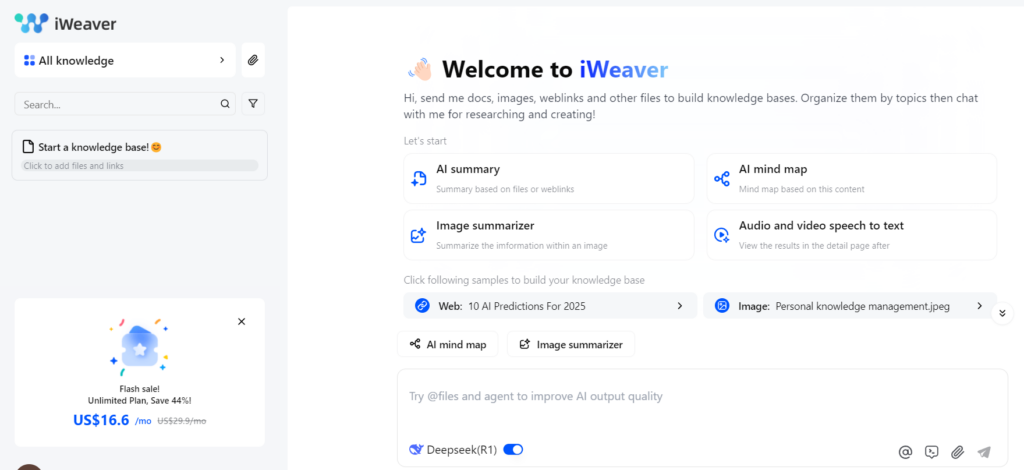
- OpenAI’s GPT Models:
OpenAI’s GPT models (such as GPT-3 and GPT-4) are highly advanced language models designed for a variety of natural language processing tasks, including summarization. These models excel in generating coherent, contextually relevant, and readable summaries of long texts, making them ideal for summarizing books. GPT models can capture the essence of a document, retain important points, and present the information in a concise, human-like manner. Additionally, they can be fine-tuned for specific domains or types of text, offering flexibility for users with varying summarization needs. For book summarization, they can handle complex structures and provide summaries that are both informative and engaging.
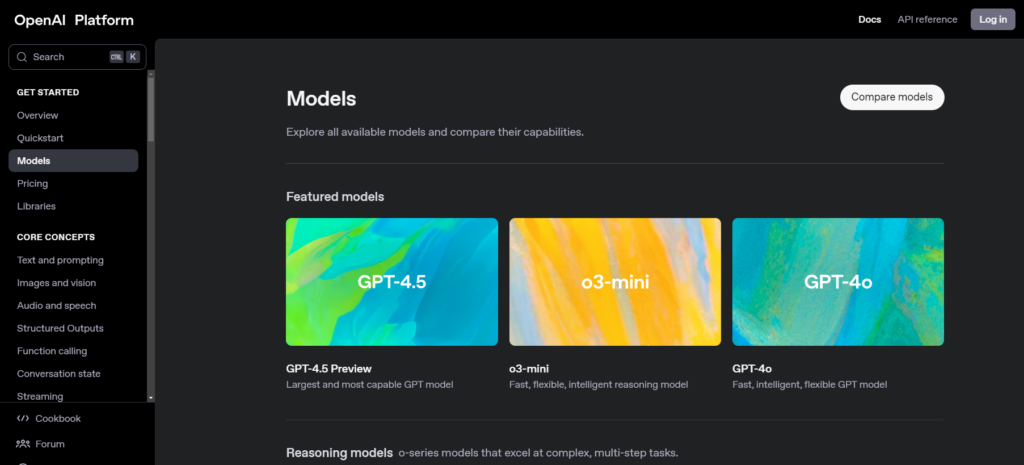
- SummarizeBot:
SummarizeBot is a specialized AI tool designed specifically for summarizing long texts, including books, articles, and reports. It uses advanced natural language processing algorithms to analyze and condense documents, preserving the most important ideas while eliminating less relevant information. SummarizeBot allows you to upload entire books or articles and provides concise summaries that help you quickly grasp the main points without reading the entire document. It is particularly useful for processing large texts and is accessible via an easy-to-use interface, making it a great option for both personal and professional use.
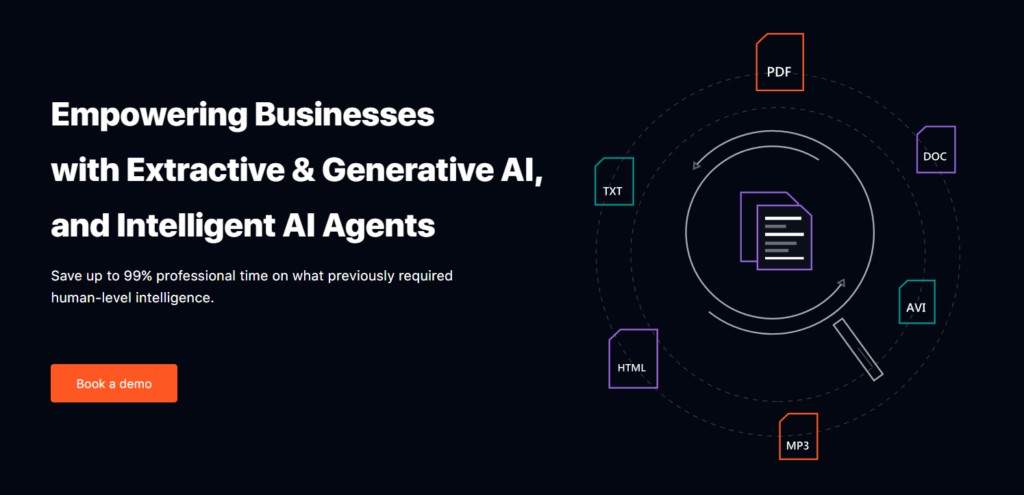
- SMMRY:
SMMRY is a free and simple-to-use tool that automatically condenses long texts into a shorter summary. It works by reducing the number of sentences in the original text, preserving the key information while omitting redundant or non-essential details. SMMRY is ideal for users who need quick summaries with a set number of sentences (for example, reducing a 5,000-word article into just 5 or 10 sentences). While it’s less flexible than some other AI tools in terms of customization, it’s an excellent choice for those who want a fast, straightforward summary without the need for additional features or deep analysis. It supports text input through copy-paste, URL submission, or document upload, making it versatile for different types of content.
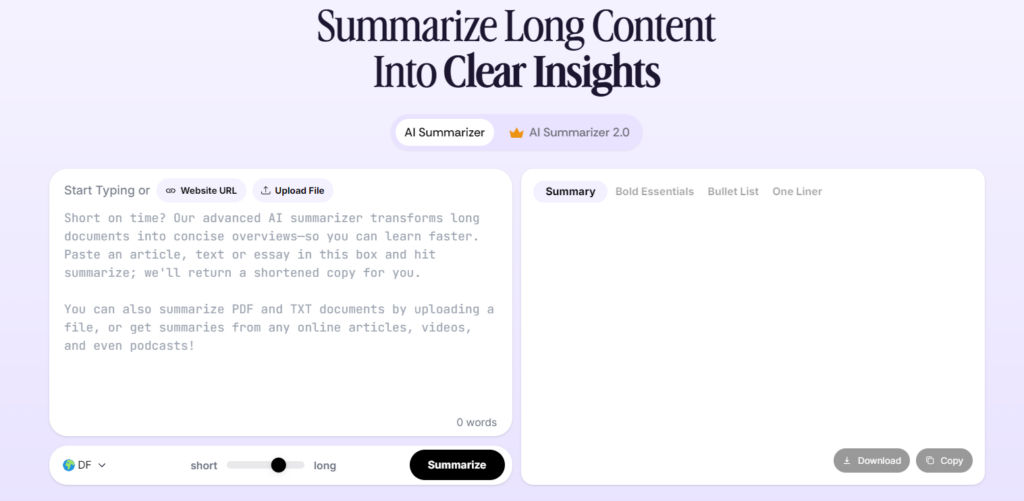
Make sure the tool you choose is robust and can handle the complexity of the book you’re summarizing. Some AI tools even allow you to upload entire documents for automated summarization.
2. Prepare Your Source Material
Once you’ve selected your AI tool, the next step is preparing the text. If you have a physical copy of a book, you’ll need to either scan it or use an OCR (Optical Character Recognition) tool to convert it into text format. Digital books like PDFs or eBooks can usually be uploaded directly into AI tools.
Ensure the text is in the right format to ensure accuracy. For example, if the book is in PDF format, make sure that the text is readable by the tool, as some PDFs are scanned images rather than text-based files.
3. Input the Text into the AI Tool
Once your text is ready, input it into the chosen AI tool. This can be done by:
- Copy-pasting the text.
- Uploading the entire document or file.
Depending on the tool, you might also have options to specify the length of the summary (short, medium, or long). For instance, if you’re using a tool like GPT-4 or SummarizeBot, you can specify how detailed the summary should be.
4. Analyze the AI-generated Summary
After the AI generates the summary, you should review it to ensure it aligns with the key takeaways you were hoping to gather. Often, AI tools produce high-quality summaries, but sometimes the output might require minor adjustments. Look for these potential areas:
- Key Points: Did the AI capture the most important messages or arguments from the book?
- Clarity: Is the summary clear, and does it follow a logical flow?
- Depth: Does the summary reflect the necessary depth of the book? For technical books, a more in-depth summary might be needed.
If you’re unsatisfied with the results, don’t hesitate to refine the input or adjust the summary length to meet your needs.
5. Customize the Summary (Optional)
If the summary is too general or lacks detail, you can always use AI’s customization features. Some tools allow you to adjust parameters like the level of abstraction or specific topics to focus on.
Additionally, some tools offer “thematic summaries,” which allow you to focus on specific themes or concepts from the book. For example, you can ask the AI to focus solely on the character development or themes of power in a specific novel.
6. Save or Share Your Summary
Once you’re happy with the summary, you can either save it for future reference or share it with others. Some AI tools even allow you to export your summaries in different formats, like PDF, Word, or plain text.
Effective Strategies for Summarizing Books Using AI
1. Break Down the Book into Manageable Sections
Rather than tackling an entire book at once, break it into smaller chunks. By summarizing each chapter or section individually, AI can better handle lengthy, complex texts and ensure that nothing important is lost. This step-by-step approach not only makes the process more digestible but also allows you to focus on the key ideas of each part before moving to the next. For especially long books, it might be helpful to summarize one chapter or theme at a time, maintaining clarity and detail.
2. Focus on Core Themes and Questions
AI tools excel at identifying the heart of a book. To make the most of your summaries, focus on specific questions or themes you care about. For example, you can direct the AI to highlight the protagonist’s growth, the moral lessons of the story, or even how certain themes evolve over the course of the narrative. You could ask AI, “What does this book say about resilience?” or “Summarize the plot from the antagonist’s perspective.” This precision will allow you to get tailored summaries that directly align with your interests.
3. Use AI to Compare Perspectives Across Multiple Books
AI isn’t just useful for summarizing one book—it can help you compare multiple works on similar subjects. You can ask the AI to generate summaries of books within a certain genre or on a specific topic. By doing this, you can quickly compare the different approaches, themes, or arguments presented, helping you identify trends and gaps in literature, or even formulate new ideas based on various perspectives.
Tips and Tricks for Efficient Summarization
- Divide and Conquer with Shorter Texts: If a book is too dense or long, break it into sections or chapters and focus on summarizing one part at a time. This helps AI maintain clarity and depth without overwhelming you with too much at once.
- Ask Specific Questions for Focused Summaries: Instead of asking for a general summary, narrow down your request to get more precise insights. For example: “What are the key turning points in this book?” or “How does the author portray leadership in this work?”
- Refine the Summary for Nuanced Details: Sometimes, AI might miss subtleties or nuances in the original text. After receiving the summary, feel free to refine and tweak it to match the tone, detail, and focus that fits your needs.
Why Does Summarizing with AI Matter?
In today’s fast-paced world, AI-based summarization has revolutionized how we engage with books and learning material. Whether you’re an educator, a researcher, or simply someone looking to get the key insights from a book, AI can save you countless hours while ensuring you don’t miss out on critical ideas. AI-powered summarization offers a way to consume and process information efficiently, making learning more accessible.
Benefits of Using AI for Book Summarization
- Enhanced Productivity: AI allows you to absorb key information from books without getting bogged down in excessive detail. This leads to better time management, especially when you need to quickly evaluate or understand complex ideas.
- Improved Retention: Actively summarizing content with AI encourages deeper engagement with the material. By focusing on the essence of what’s being conveyed, you reinforce your understanding and memory, which aids retention.
- Significant Time Savings: AI speeds up the summarization process, helping you digest large volumes of information in a fraction of the time it would take to read the entire text. This is especially beneficial for students, professionals, or anyone juggling multiple tasks and needing to gather insights fast.
By utilizing AI tools effectively, you can not only save time but also enhance the depth and breadth of your understanding, making summarization not just a shortcut but a powerful learning tool.
FAQs
What is a book summarizer?
Book summarizer is an innovative tool that uses artificial intelligence to condense a lengthy book into a concise, comprehensive summary, extracting key points, themes, and insights. It’s perfect for anyone looking to gain a quick understanding of a book’s content without reading every page. Our AI Book Summarizer is designed to provide a time-saving solution for students, professionals, and readers, helping them focus on what matters most.
How does the AI Book Summarizer work?
Our AI Book Summarizer leverages advanced AI technology, specifically DeepSeek, to analyze the book content and identify the most important information, themes, and insights. The process involves three easy steps: uploading your book in any digital format, AI analysis, and generating a concise summary with key points in seconds. This allows you to skip hours of reading and instantly grasp the core takeaways.
Is the AI Book Summarizer accurate?
Yes, our AI-powered book summarizer ensures high accuracy and relevance, capturing essential themes, ideas, and details with ease. Powered by advanced AI technology, our tool is designed to deliver precise summaries, saving you time and effort. You can trust our AI Book Summarizer to provide a comprehensive overview of the book, without missing crucial information.
Who can benefit from the AI Book Summarizer?
Our AI Book Summarizer is perfect for students, professionals, and readers who want to boost their learning and productivity. Whether you’re a student seeking to review study material, a professional looking to stay updated on industry trends, or an avid reader wanting to explore new books, our tool helps you extract key insights quickly and efficiently. Educators, authors, and book clubs can also benefit from our AI Book Summarizer to create lesson plans, refine writing ideas, or prepare for discussions.
Can AI summarize any type of book?
Yes, AI can summarize virtually any type of book, from fiction to non-fiction, self-help to academic texts. However, for highly technical or niche subjects, you might need to refine the summary manually.
How long does it take for AI to summarize a book?
The time it takes depends on the length of the book. AI tools can typically summarize a 200-page book in under 5 minutes.
Are AI-generated summaries accurate?
In most cases, yes. AI tools are designed to identify key themes and ideas, though sometimes manual refinement may be necessary for complex books.
Are there any free AI tools for summarization?
Yes, there are several free AI tools available, such as iWeaver’s Book Summarizer.
How can I use AI-generated summaries in my work?
AI-generated summaries are useful for preparing reports, conducting literature reviews, or gaining quick insights into books related to your work or studies.
By using AI to summarize books, you can unlock valuable insights and save time, making learning and working more efficient.



